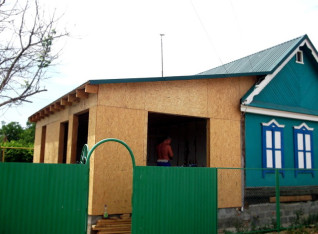Registration of a share in Germany: legal aspects and features of the process
In the modern world, where globalization and migration are becoming the norm, the topic of purchasing real estate abroad, in particular in Germany, is of particular relevance. One of the forms of real estate ownership in Germany is a share in a housing cooperative (German: Wohnungsgenossenschaft). In this article we will look at the legal aspects and features of the process of registering a share in Germany.
First of all, it is worth noting that German legislation in the field of real estate and cooperative housing differs significantly from Ukrainian legislation. Therefore, in order to successfully complete all procedures for registering a share and resolving related issues, such as legalizing redevelopment or registration of an extension, it is important to support a qualified German lawyer or criminal lawyer who understands the specifics of local legislation.
The process of registering a share in Germany begins with a thorough inspection of real estate and documentation. This includes reviewing the co-op bylaws, financial records, property history, and checking for any encumbrances or debts. Inspection is critical because it helps avoid problems associated with illegal alterations, additions or extensions.
German law takes matters of redevelopment, addition or addition seriously. Any changes to the layout or structure of the building must be properly authorized. Registration of redevelopment (German: Genehmigung für Umbau) or legalization of a building (German: Legalisierung des Gebäudes) involves obtaining permits from the relevant authorities, making changes to technical documentation and possibly paying additional fees.
Legitimizing redevelopment or registration of an extension is especially important in the context of registering a share. If it turns out that previous owners made illegal changes, this may make registration difficult or even impossible. In the worst case, this can lead to administrative or even criminal liability.
In German law there is also the concept of acquiring ownership by acquisitive prescription (German: Ersitzung). This applies to cases where a person has bona fide, open and continuous ownership of real property for a specified period of time (usually 10 or 30 years depending on the circumstances). However, in the case of cooperative apartments, this mechanism is rarely used, since property rights in cooperatives are clearly regulated.
The process of registering a share (German: Anteilsregistrierung) in a German cooperative usually involves submitting an application to the board of the cooperative along with the necessary documents. This may include a share purchase agreement, documents confirming the absence of debts to the cooperative, as well as any necessary permits for redevelopment or additions, if any.
After submitting all documents and checking them by the board of the cooperative, the share is registered in the register of members of the cooperative. This process may take several weeks or even months, depending on the cooperative's internal procedures and the complexity of the case.
It is important to understand that German law has clear requirements for liability for violations in the construction and real estate sector. Illegal redevelopment, add-ons or extensions can lead not only to refusal to register a share, but also to administrative fines or even criminal liability.
In the context of criminal liability, real estate crimes are not typically compared to serious crimes such as murder, rape, or robbery. However, depending on the circumstances (for example, if the illegal addition or addition resulted in death), the penalties can be quite severe, including long prison terms.
If a person has been illegally detained or taken into custody in connection with a real estate case, a criminal defense lawyer can help with the arrest being lifted and the client's violated rights restored. German criminal law provides for clear procedures and guarantees for the protection of citizens' rights, and a lawyer must ensure their compliance.
It should be noted that the process of registering a share and registering real estate in Germany can be complex and lengthy, especially for foreigners. Language barriers and unfamiliarity with local laws and procedures can significantly complicate the process. Therefore, hiring a qualified German lawyer is almost a necessity.
The cost of a lawyer’s services in a criminal case or in matters of registering real estate in Germany can be quite high. However, given the complexity of German legislation and the potential risks associated with illegal activities in the real estate sector, this investment is justified.
So, the process of registering a share in Germany includes not only the preparation of documents for real estate, but also a thorough check of the history of the property, including Possible redevelopments, add-ons or extensions. If such changes are detected, it becomes necessary to legitimize and formalize them.
In parallel with this, the lawyer must be ready to defend the client in the event of any administrative or criminal charges related to violations in the construction and real estate sector. This requires an in-depth knowledge of German criminal law, procedural rules and practical experience in handling cases.
As a result, registering a share in Germany and related legal procedures require a professional approach. Hiring a qualified lawyer knowledgeable in both real estate matters and German criminal law is the key to a successful and legal acquisition of real estate, as well as protection from possible administrative and criminal risks.




































